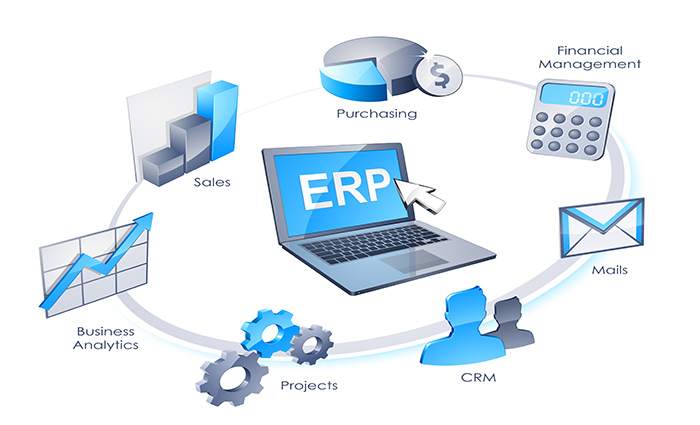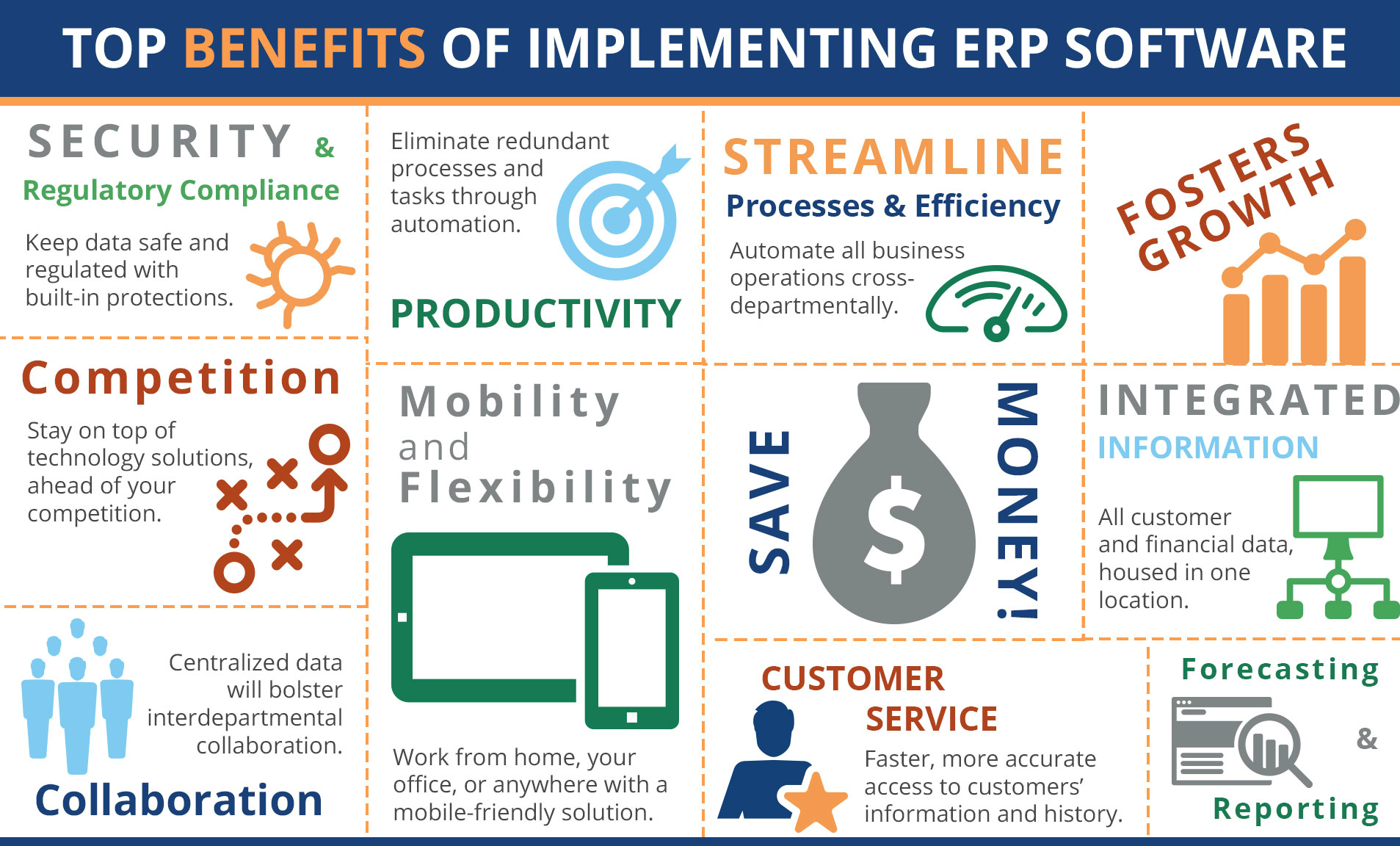ERP
What is ERP software?
The key to understanding ERP software is to think “integration.” ERP software links systems across an enterprise to streamline workflow, share information among different departments, and provide insight into a business’s operations.
An ERP system does away with each department using its own software to do its work (human resources software to track employees, accounting software to pay bills, spreadsheets to track inventory, etc.). Instead, an ERP system stores all company data in a single, relational database. Employees input the data and access it via modules designed specifically for each functional area.
Arvive Systems ERP Modules

- Human Resources
- Finance
- Payroll
- Customer Relationship Management ( CRM )
- Sales
- Purchasing
- Inventory Management
- POS
- Self Service
- Supply Chain Management
Benefits of ERP from Arvive Systems

Storing all of a company’s data in a single, relational database makes it possible to write queries and generate reports that give business leaders a sense of how the company is doing and where they can make business process improvements to save money and increase profits. A single database makes a complete set of data available to everyone for a holistic view of a company’s performance.
ERP software is used by companies in many different industries. However, manufacturing companies are particularly well-suited to ERP systems because the various pieces of the order fulfillment process are connected, making it easier to track orders and coordinate manufacturing, warehouse and shipping functions, especially among different locations. Retail chains and third party logistics providers are also examples of companies that use ERP systems to manage their businesses.
The idea is to help businesses operate more smoothly and provide better customer service than they can with individual systems that are isolated from the rest of the organization.
Benefits
- It helps businesses improve internal processes.
- It integrates systems from different functional areas, making business operations more efficient.
- Our ERP systems can automate parts of the manufacturing process, which allows organizations to introduce standards that increase productivity, save time and reduce staffing requirements.
- Increased visibility of the order fulfillment process from beginning to end helps reduce work-in-progress inventory and finished goods inventory.
- ERP software can be used to manage employee information across multiple business units, making it easier to track years of service and eligibility for benefits and services.
- Many businesses can purchase ERP software packages tailored to the specific needs of their industry.
- Data to support Key Performance Indicators (KPIs) are easily accessible.
